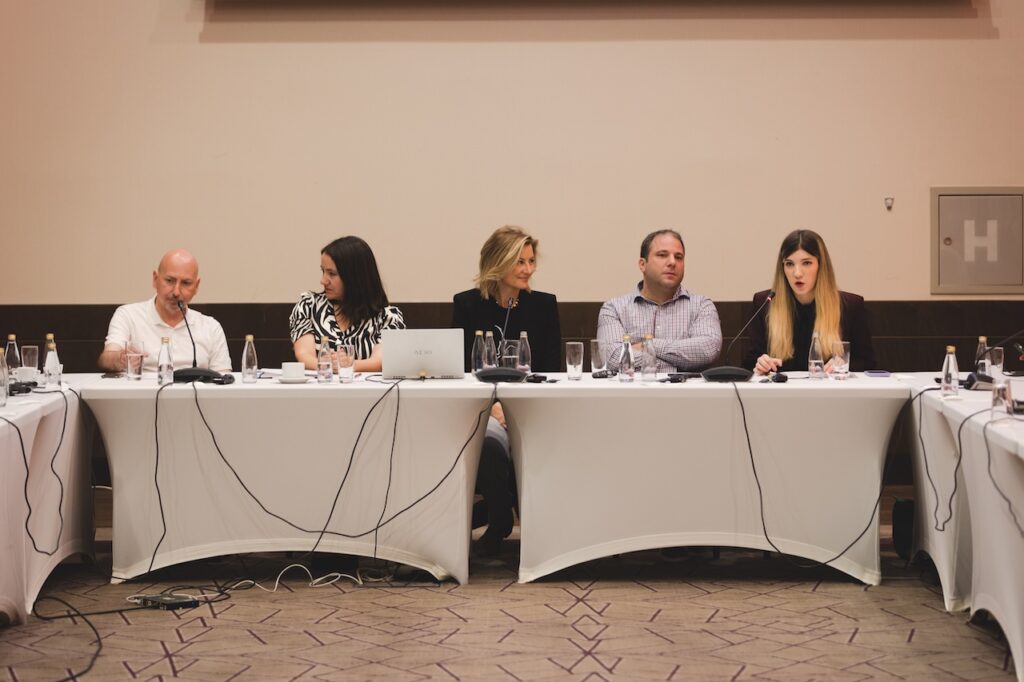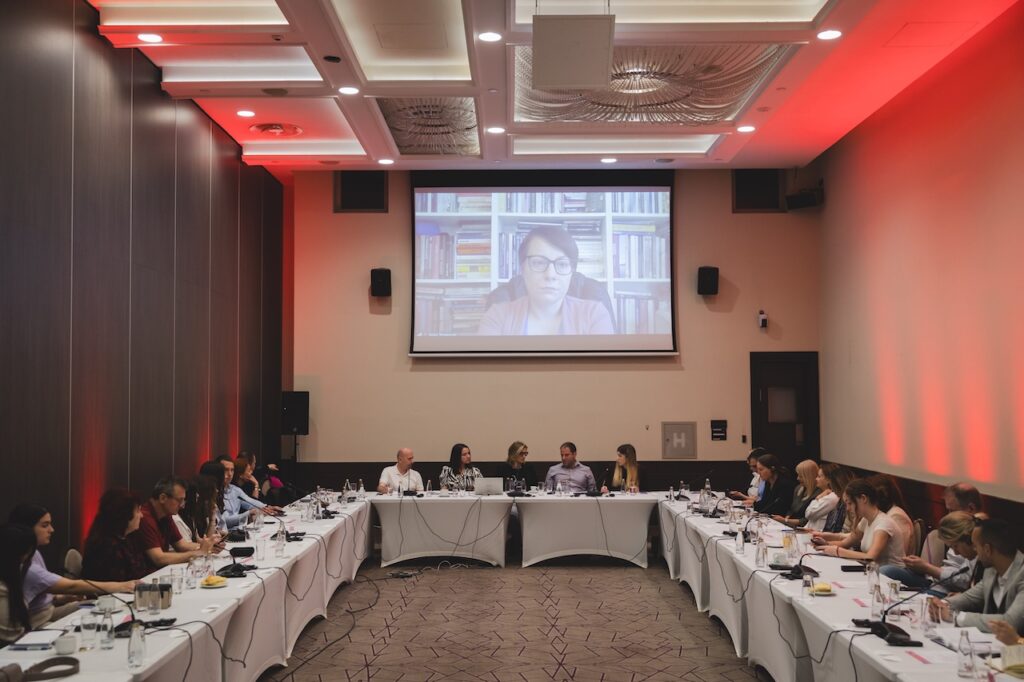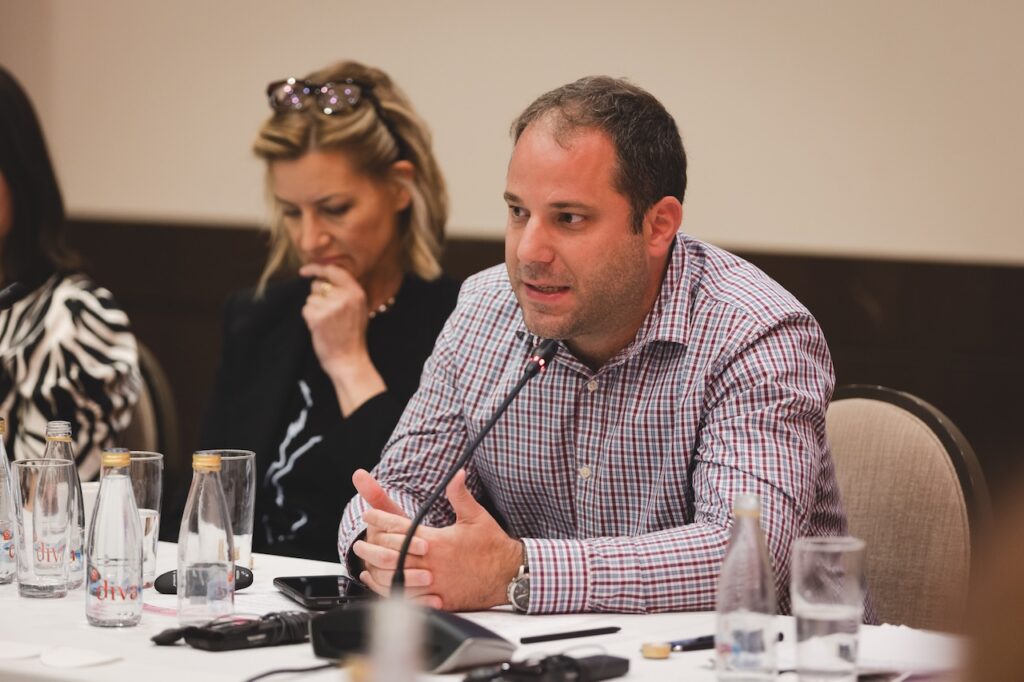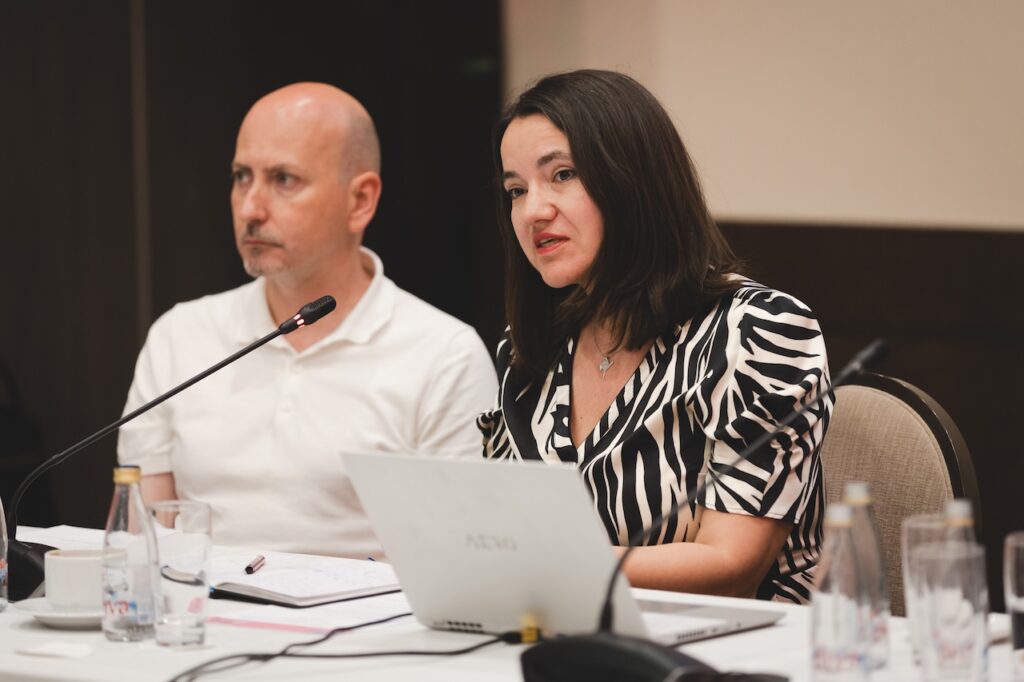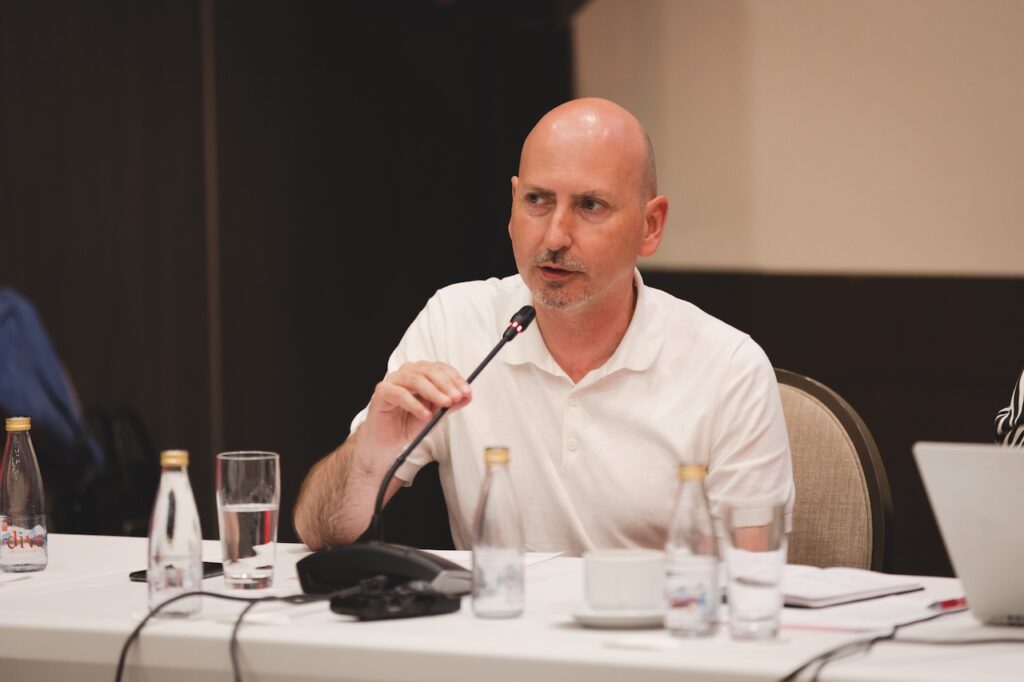The authorities are increasingly treating legitimate critics as criminals and trying to label public criticism as unlawful, this was one of the key messages from the second session of the conference Civic Mobilization as a Response to Institutional Deficit, organized by the Centre for Civic Education (CCE) and the Friedrich Ebert Stiftung (FES).
During the panel “The Voice of Citizens in Times of Crisis: Democracy Under Pressure,” Tea Gorjanc Prelević, Executive Director of the Human Rights Action (HRA), emphasized that people working in civil society are simply individuals more experienced in defending the public interest.
“But all of us began as individual activists. An activist does not necessarily have to come from an NGO. What NGOs can offer is logistical support, media outreach, and help in articulating key issues or highlighting facts – this is what we do,” explained Gorjanc Prelević.
She reminded that NGOs have supported various protests, including the earlier “Resist” movement as well as the more recent demonstrations organized by the informal student group Kamo śutra, providing both public presence and legal defence when their organizers were under attack.
“The government targets legitimate critics by labeling them as criminals, and tries to turn criticism into something unlawful. This is a below-the-belt tactic that stifles freedom of expression”, said Gorjanc Prelević, emphasizing that young people should be educated about protests and its historical significance.
She also noted that the anti-war movement of the 1990s, although ultimately unsuccessful, holds lasting value as a moral reference. “We have reasons to be proud. Even though they were a minority, those voices proved that awareness and conscience existed in this country,” she added.
She stressed the importance of introducing civic education in schools for many reasons.
Gorjanc Prelević argued that civic protest is valuable because it is rooted in constitutional principles. “A citizen has the right to demand accountability, to call for the resignation of a president, prime minister, or minister. But the normalization of targeting individual citizens, accusing them of mafia ties without evidence – that crosses a line”, she stated.
Maja Stojanović, Executive Director of Civic Initiatives in Serbia, stated that the region has gone through a lot. “That has brought us a deep sense of cynicism. It seems to me that is why we often approach next steps with skepticism, shaped by all we’ve experienced”, she said.
“The current protests show that there is much more potential than we had hoped for. Young people have sent a clear message that they have the capacity and the knowledge. Young people are demanding things far louder than older generations, and they are demanding what we have been asking for for decades”, she assessed.
She added that people should think for themselves and fight for their rights. “And, I believe that those who fight for their rights can expect better outcomes”, Stojanović said.
Historian Miloš Vukanović addressed protest movements from a historical perspective, noting that people tend to search for patterns in hindsight. He pointed out that three key protests happened in Belgrade: in the 1930s, in 1968, and in the 1990s.
“The first two were tied to ideological shifts in Yugoslavia. But fundamentally, the events of 1968 should always be observed – not just in Yugoslavia, but across Europe. That year marked a turning point. The political thinking of young people was fundamentally different before and after 1968. Before then, society expected citizens to be compliant, even to go to war. After 1968, pacifism, environmental consciousness, and new forms of civil and sexual liberation emerged”, Vukanović explained.
He said student protests often advocate for new values. “If they create a new value, it will last for decades. Young people hold a crucial power, because time is on their side”, Vukanović noted.
He also recalled two student protests in Montenegro – those in 2011 and the recent “Kamo śutra” non-formal student movement in 2025.
“When students protested in front of the Parliament in 2011, their demands had social focus, and to some extent, they succeeded”, said Vukanović.
He added that one of the effects of the “Kamo śutra” protests is that “none meaningfully recognizes the political leadership of the Ministry of Interior anymore”.
Vukanović said that even when protests do not succeed immediately, the ideas remain. “Recently in Montenegro, there were four small protests happening simultaneously. Just days ago, a small victory was achieved on Beogradska Street. All of this worked because someone turned the wheel. Kamo śutra introruced a compelling idea”, he concluded.
Commenting on the protest that followed the tragic shooting in Cetinje, he said it was essential to affirm the principle that anyone who accepts a public function must also accept the responsibility it carries.
Professor Jasna Tatar Anđelić, from the Faculty of Philology at the University of Montenegro, believes the “Kamo śutra” movement showed what the future could look like and offered possible methods for mobilization.
“Building a civic society is something that happens step by step. Mobilization takes time. Protests and the culture surrounding them take time to develop. Civic awareness needs to be nurtured from early on”, Tatar Anđelić stressed.
She said she does not have an answer for how to activate her colleagues at the university, adding that choosing an academic career does not necessarily make someone a free intellectual.
According to her, every reason for protest is a legitimate one. “Civic activism shows that all reasons are valid. We are the bearers of sovereignty, and we should also work on informal models of organization. Civic mobilization is a long-termendeavor”, Tatar Anđelić concluded.
Film director Andro Martinović said that artists do not have the luxury of remaining neutral in times of systemic injustice. “This is because of the status they hold in society. Ultimately, both art and citizenship share a common foundation: the question of freedom. A citizen is inseparably linked to the concept of freedom as the highest value”, said Martinović.
Commenting on recent protests in Serbia, Martinović lamented the lack of clear goals. “I believe there were two missed opportunities. Clear demands should have been presented earlier, because when you launch something like this, there’s a real danger that the energy will go unused”, he explained.
“Sometimes you must confront power directly if you want real change”, Martinović emphasized.
He also stated that we should not always fight against divisions and that we should not accept that narrative. “We do not all have to think alike, and different modes of expression must be encouraged”, he added.
Reflecting on regional dynamics, he emphasized that neighbouring states are inevitably interconnected, and “that is why we care about each other”.
“The concept of the ‘Serbian World’ has real effects, and Montenegro must respond to it”, Martinović concluded.
MINA Agency

